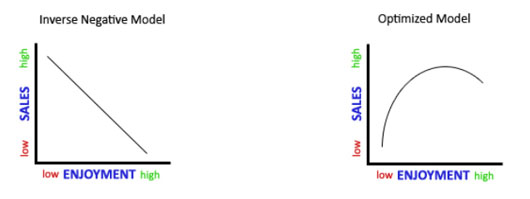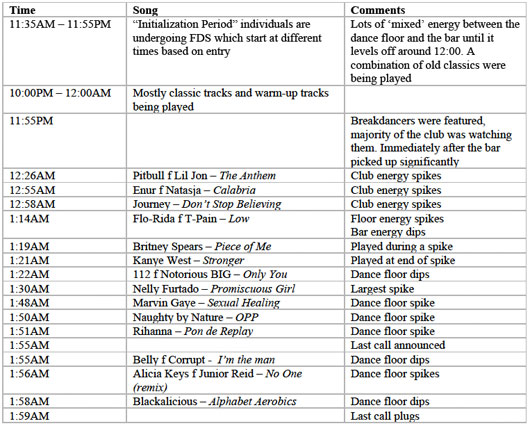Yale Fox Maximizes DJ Profits, Nightclub Douchery
Most people are aware of the famous Frank Zappa quote, “Writing about music is like […]

Most people are aware of the famous Frank Zappa quote, “Writing about music is like dancing about architecture.” And while, obviously, we still give it our best shot, we like to keep the sentiment in mind when describing the various intangibles of our favorite tunes. However, upon discovering this article on the New York Times’ Freakonomics blog, we’d like to add to Zappa’s point “Histographing about DJing is like being a douche.” Toronto-based DJ and Queen’s University undergrad Yale Fox has tried to break down the finer points of nightclubbing (dancing, drinking, listening to music, and spending money) and DJing into a “scientific” study for his thesis, which he calls “Inside the DJ Booth: How A Disc Jockey’s Strategic Track Selection Can Enhance Experience, Foster Loyalty, and Boost Profits.”
Aside from the study being completely necessary and totally not demeaning or counteractive to the true essence of inspired artists and DJs everywhere, Yale Fox is undoubtedly the go-to man for such information, as he has performed alongside the likes of ground-breaking artists Dave Matthews Band, Weezer, and Def Leppard and “genuinely love[s] music more than you can imagine.” Really though, if you are a DJ, producer, musician, or any such creative talent, you probably should refrain from completely discrediting your art by turning it into a fucking ‘self-starter’s guide to pandering to the lowest common denominator and getting paid while doing it,’ unless you want a snarky article posted about you on the internet. And just in case you readers don’t want to sift through the banal club jargon and ludicrous stats that litter Fox’s piece, we put a couple of our favorite graphs below. And no, they are not a joke—at least not intentionally.



